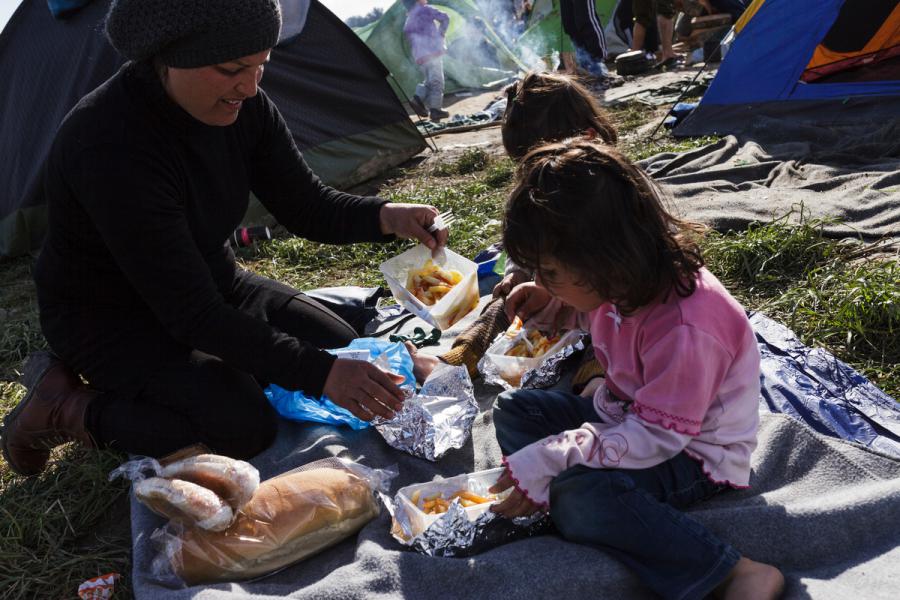
Brushing raindrops off her tent, Nisrine Shiko, a 34-year-old Syrian refugee and widow travelling with her five children, tries her best to waterproof the family’s living space. For the past week they have been staying near Idomeni, a Greek village on the border with the former Yugoslav Republic of Macedonia.
At least 12,000 people are now caught here in miserable conditions, uncertain of their future.
Nisrine, her two sons and three daughters sleep in two tiny camping tents pitched side-by-side in a muddy field. Icy rain pitter-patters on the plastic overhead; nothing is ever dry.
Life at Idomeni is hard on everyone, but it is especially difficult for single mothers. “I am both mother and father at the same time,” says Nisrine, whose husband was killed in Syria three years ago. “God gives me strength to care for these children.”
The family is among the thousands of women and children making the journey to Europe alone, with little protection along the route.
For the first time since the start of Europe’s refugee crisis, they have overtaken single males as the majority of those on the move. Women and children now make up nearly 60 per cent of sea arrivals, according to UNHCR data, compared to less than 30 per cent in June 2015.
Many women, like Nisrine, are widows whose husbands died in the war or in earlier sea crossings. Others have husbands in Germany, Sweden or elsewhere in Europe. They say they are now coming to join them as legal options such as family reunification take too long – and as more European countries close their borders to refugees.
Safety is a major concern for such women and children, says Babar Baloch, a spokesperson with UNHCR, the UN Refugee Agency, who is now at Idomeni.
“They face exploitation at the hands of smugglers and traffickers at many stages during the journey,” Baloch says. “Or there are issues of sexual harassment or even abuse because they’re on their own. It’s difficult to survive if they don’t have support from others.”
UNHCR, along with its sister agency, UNICEF, and other partners, recently launched support centers for the growing numbers of refugee children and others with special needs. The Child and Family Protection Support Hubs, known as “Blue Dots,” provide services such as legal support and family tracing. A hub is operational at Idomeni.
During the trek to Idomeni, Nisrine’s family stuck with a group of Syrian Kurds for protection and support. Some have now pitched their tents near hers.
Still, their daily lives are harsh. Idomeni’s camp was built as a temporary transit place for 2,000 people maximum. Although UNHCR and other aid groups provide refugee housing units, most people sleep in flimsy individual tents. Heavy spring rains have flooded the camp. Small children march through muddy puddles, soaking the only clothes they have.
Nisrine’s tent is a few hundred metres from the razor-wire fence built by the former Yugoslav Republic of Macedonia in November to control irregular migration flows.
Nisrine worries constantly that her children will join the chorus of coughing, stuffy-nosed people around them.
One morning this week, she sat on blanket looking after three-year-old Adib, her youngest, and four-year-old Sedra. Adib knocked his sister’s Barbie doll into the wet dirt, prompting a fit of tears.
“I’d rather die than see my children living in these conditions,” Nisrine says. “I can’t stand it.”
 FR
FR EN
EN AR
AR








